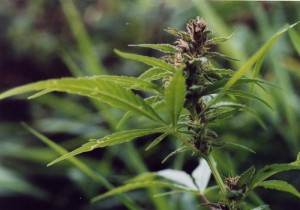In some states, people with serious medical illnesses that do not respond to traditional forms of therapy can, with the help of their doctors, obtain a prescription that allows them to take marijuana for medical purposes, even if recreational use is declared illegal in the states in which they live. While this movement from illegal to legal might seem radical enough to some, there are other states that are moving to reduce the restrictions on marijuana yet further. For example, according to news reports, Oregon, Washington and Colorado all plan to place initiatives on their November 2012 ballots that would legalize and tax marijuana. If these laws pass, anyone over a specific age could take the drug, even without input or approval from a physician.
The arguments in support of marijuana legalization can seem quite compelling. In fact, there might be some people who might really benefit from a change in the legal status of marijuana. On the other hand, there are some real and terrible consequences for some people who take marijuana. For these people, and their friends and family members, a move toward legalization could be catastrophic.
The Legalization Movement
 It’s hard to know when the movement to legalize marijuana truly began. After all, it’s relatively easy to scan through newspapers from the 1960s and 1970s and see passionate articles written by advocates who claim that the drug is completely benign, because it is natural and because it’s been used for recreational purposes for hundreds of years. People are still writing letters like this, of course, and they take to the Internet in droves churning out blog entries and passionate first-person accounts of their experiences. While these stories might have always been compelling, they might be carrying more traction now due to circumstances that have very little to do with passion and personality and a whole lot to do with economics and finances.An article published in Time in 2009 laid out the issue in no uncertain terms: The United States spends $150 billion per year on policing and courts, and 47.5 percent of drug arrests are marijuana related. The author suggests this money could be better spent on necessities such as schooling or roads. In addition, the article suggests, taxing marijuana could allow cash-strapped states to come up with income they so desperately need. In California, the article states, a 10-percent tax on marijuana could bring the state $1.4 billion annually. Many states desperately need to raise money, in any way they possibly can, and marijuana legalization seems to be a potential source of revenue that might do the trick. This might be fueling the rush to legalize the drug, and it is a compelling reason, indeed.
It’s hard to know when the movement to legalize marijuana truly began. After all, it’s relatively easy to scan through newspapers from the 1960s and 1970s and see passionate articles written by advocates who claim that the drug is completely benign, because it is natural and because it’s been used for recreational purposes for hundreds of years. People are still writing letters like this, of course, and they take to the Internet in droves churning out blog entries and passionate first-person accounts of their experiences. While these stories might have always been compelling, they might be carrying more traction now due to circumstances that have very little to do with passion and personality and a whole lot to do with economics and finances.An article published in Time in 2009 laid out the issue in no uncertain terms: The United States spends $150 billion per year on policing and courts, and 47.5 percent of drug arrests are marijuana related. The author suggests this money could be better spent on necessities such as schooling or roads. In addition, the article suggests, taxing marijuana could allow cash-strapped states to come up with income they so desperately need. In California, the article states, a 10-percent tax on marijuana could bring the state $1.4 billion annually. Many states desperately need to raise money, in any way they possibly can, and marijuana legalization seems to be a potential source of revenue that might do the trick. This might be fueling the rush to legalize the drug, and it is a compelling reason, indeed.
The Anti-Legalization Movement
Just as those who support legalization can come up with compelling reasons to do just that, those who do not support legalization have plenty of their own reasons for believing that legalization can be disastrous. While some reasons center on the health and well-being of those who are addicted, many other reasons can be tracked back to public health and a sense of the common good.If marijuana is legal, these experts claim, then the number of automobile accidents that could be traced back to marijuana are likely to climb. This is an argument that might have teeth, especially since marijuana is already a drug of concern when it comes to automobile accidents. According to the National Institute on Drug Abuse (NIDA), an Australian study of 3,400 fatally injured drivers found that 13.5 percent had cannabis present in the bloodstream. Marijuana can cloud thinking and reduce reflex speed, and this might make accidents more likely. If marijuana were legal, it’s possible more accidents could result, and those injured in accidents aren’t always those who are driving. In fact, those people in other cars, or people who are just standing nearby, might also be injured in these accidents. Since this is the case, legalizing marijuana might lead to more injuries of non-drug-taking people.Critics of marijuana legalization also claim that marijuana works as a gateway drug, allowing people to move from simply taking marijuana to taking more serious drugs of abuse, including:
- Heroin
- Cocaine
- Methamphetamine
- Prescription painkillers
This is an assertion borne out by research. In fact, according to a study published in the Journal of Studies on Alcohol, marijuana’s role as a gateway drug seems to have increased since 1965, as the drug has grown more prevalent. If this is the case, making the drug more widely available could also lead to more widespread abuse of these serious drugs, and the amount of public suffering that could result would be immense.
Back to Top
Use, Abuse and Addiction
 Not everyone who uses marijuana will become addicted to the substance. According to the NIDA, about 9 percent of people who use marijuana will become dependent upon it. However, people who use every day may be at higher risk of developing an addiction. The NIDA reports that 25 to 50 percent of these users develop addictions. So while it might be true that some people can take the drug without developing an addiction issue, it is also very true that many people who do take the drug develop terrible addictions.
Not everyone who uses marijuana will become addicted to the substance. According to the NIDA, about 9 percent of people who use marijuana will become dependent upon it. However, people who use every day may be at higher risk of developing an addiction. The NIDA reports that 25 to 50 percent of these users develop addictions. So while it might be true that some people can take the drug without developing an addiction issue, it is also very true that many people who do take the drug develop terrible addictions.
The line between using a drug and abusing it is different for each person. For example, some people may take marijuana each day because they’re using the drug for a medicinal purpose. They may even develop symptoms of tolerance for the drug, meaning that they need to take larger doses of the drug in order to feel the same beneficial effects. However, these people may not be considered “abusers” of the drug because they’re following their doctors’ orders. On the other hand, some people may begin taking the drug for recreational purposes, to have fun and loosen up with their friends. These people may start taking the drug every day, and taking the drug alone. And they may not even enjoy taking the drug at all. Instead, they feel compelled to take it. This might be crossing the line into abuse. People who might have an abuse problem with marijuana tend to develop these symptoms:
- Spending rent money, mortgage money or grocery money on marijuana
- Choosing friends based on their drug use
- Spending a significant amount of time, each day, thinking about buying or using drugs
- Scheduling the day around marijuana use
Some drug users claim that those who develop these symptoms of addiction do so because they are somehow too weak to fend off these symptoms, or that marijuana simply cannot cause addiction at all. This isn’t a claim that’s supported by research. According to a study in the journal Current Psychiatry Reports, marijuana users can develop symptoms of withdrawal when they attempt to stop using. These symptoms can include anxiety, drug cravings, difficulty sleeping and lack of appetite. These aren’t minor symptoms that any person could handle without help. These are the sorts of symptoms that might drive some people back into using marijuana, and withdrawal symptoms like this are often considered the hallmark of an addictive drug. Marijuana certainly seems to fit in this category.
Marijuana might also be psychologically addictive. People who take marijuana must do a large amount of preparation in order to take the drug. They need to prepare their tools, either by rolling cigarettes or by inserting the drug into specific pipes that must be periodically cleaned, and these steps can also be addicting. Just starting the steps seems to soothe people, and they may be compelled to start the process when they’re nervous or under stress. Marijuana is also a social drug, and people who are accustomed to taking the drug when they’re in party situations with their friends might find it difficult to spend time with these same friends unless drugs are available. It is a serious problem, especially if these people only have friends who take drugs, as the peer pressure to use combined with cravings to use could keep an addiction locked in place.
Back to Top
Consequences of Addiction
It might be nice to believe that marijuana is so natural and so benign that it couldn’t possibly cause any health problems for people who are addicted. Unfortunately, this doesn’t seem to be the case. According to the NIDA, people who abuse marijuana have a 4.8 fold increase in the risk of heart attack in the first hour after smoking the drug. People with heart conditions may face serious heart damage through repeat usage of the drug. In addition, the NIDA reports, marijuana smoke has also been linked to carcinogens, and this could lead to lung cancer. People who are addicted to marijuana, and who schedule their time around purchasing and using the drug, might also have serious difficulties with relationships at home. For example, they might:
- Fight with spouses or partners over money
- Refuse to handle their share of household tasks
- Show poor parenting skills
- Seem withdrawn and isolated
These health concerns are certainly alarming, but marijuana can also cause a score of other mental health problems. For example, people who have a family history of schizophrenia, and a genetic vulnerability to the disease as a result, might trigger schizophrenia when they smoke marijuana, and once the disease has been triggered, it can only be treated and not cured. It’s a dangerous problem to deal with. In addition, marijuana has also been linked to depression and a poor quality of life. For example, an article produced by the American Psychological Association reports that heavy marijuana users rated their own quality life much more negatively than people who used the drug only sporadically and then stopped. It’s hard to know why this is the case, but it might be accurately blamed upon depression or some other form of persistent mental illness, triggered by marijuana use and abuse.
At work, they might be passed over for promotions as they seem withdrawn and uninspired. They might even lose their jobs altogether, if their bosses and supervisors don’t think that they seem capable of handling the tasks assigned or if they fail routine drug screening tests. Losing a job could plunge the whole family deep into economic turmoil.
Back to Top

Final Thoughts, and Moving On
 While there are some people who insist that the benefits of legalization of marijuana far outweigh the risks that such a move holds, it’s clear that some people who would be exposed to marijuana were it legal would suffer tremendously due to their exposure. Thankfully, if people do become addicted to marijuana, there are treatments that could provide lifesaving help. Rehab programs are adept at helping people with marijuana addictions to understand the dangers of drug use, and learn how to put their lives back together without including marijuana in the picture. It could be just the sort of help people need to get back on their feet and leave addiction behind. This is the sort of help we provide at Axis, and we’ll provide that help regardless of whether marijuana is declared legal or illegal. If you’d like to know more about our programs and the help we can provide, please call us today.
While there are some people who insist that the benefits of legalization of marijuana far outweigh the risks that such a move holds, it’s clear that some people who would be exposed to marijuana were it legal would suffer tremendously due to their exposure. Thankfully, if people do become addicted to marijuana, there are treatments that could provide lifesaving help. Rehab programs are adept at helping people with marijuana addictions to understand the dangers of drug use, and learn how to put their lives back together without including marijuana in the picture. It could be just the sort of help people need to get back on their feet and leave addiction behind. This is the sort of help we provide at Axis, and we’ll provide that help regardless of whether marijuana is declared legal or illegal. If you’d like to know more about our programs and the help we can provide, please call us today.
Back to Top


